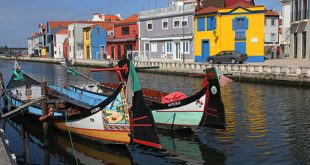Portugal is one popular destination for international students in Europe. The country provides interesting backdrops for foreign students beyond its beautiful landscapes and rich culture. Better yet, for those who struggle managing their finances or just want to make extra cash while studying, the country offers student visa holders the opportunity to work part-time. Let’s explore the possibilities and regulations surrounding part-time work for international students in Portugal. We’ll provide you as well with insights, tips, and strategies to help you strike the perfect balance between academics and employment.
Read also here our overview of the living and studying cost in Portugal for students.
Table of Contents
Can I work in Portugal as an international student?
Before addressing the subject of part-time work in Portugal, let’s talk first about the eligibility criteria. In general, foreign students can work in Portugal. However, there are specific requirements they must meet, especially for non-EU citizens residing in Portugal under a student visa and residence permit regime.
First, they need an authorization from the SEF, the Portuguese Immigration and Border Service. The same goes if they plan to undertake research work, internship, or even voluntary work in Portugal. And the responsibility regarding the necessary permit at the SEF falls upon their potential employer. Students who are EU nationals, on the other hand, do not need any work permit to get employment in Portugal.
How much can a student work in Portugal?
We know now that international students in Portugal enjoy the right and flexibility of working part-time during their study stay. Under Portuguese immigration laws, those enrolled in full-time degree programs or courses lasting at least one academic year are granted the opportunity to work up to 20 hours per week during the semester. When holidays and semester breaks roll around, students can shift gears and work full-time. This allows them to both enrich their academic pursuits and gain valuable work experience.
However, it’s important to note that the ability to work depends on one’s immigration status. Students holding a residence permit for studying in Portugal can take advantage of this opportunity, whereas those on short courses with Schengen visas may not. EU/EEA students, on the other hand, face no employment restrictions in Portugal.
How to Find Part-Time Jobs in Portugal for Students
Finding part-time employment in Portugal remains a manageable task if approached strategically. University career centers, online job boards, and networking events are excellent avenues to explore job opportunities. Students seeking part-time work can explore job opportunities on campus or seek help with peers already employed to find job listings. They can also consider positions near their college or residence for convenience.
Off-campus
Many foreign students successfully secure positions in restaurants as waiting staff, or in international companies as customer care support. They can also work as cashiers at supermarkets and grocery stores in Portugal. Additionally, in Portugal, proficiency in languages beyond English, such as German, Arabic, French, Russian, Italian, and Spanish, is also highly sought after.
This is especially the case if you’re exploring the tourism and hospitality sector, especially during summer break. You’ll even be luckier if you live in the Algarve region. Moreover, students can find part-time work tutoring subjects in STEM fields, teaching languages in language schools or foreign outlets. Others, if they have the required talent, can pursue creative avenues like photography, fashion design, art, and music.
On-campus
Job opportunities on-campus include internships, student associations, dormitory management, campus security, and positions like library assistants. Post-graduate students often find roles as teaching and research assistants in their respective departments. Overall, part-time employment in Portugal is an excellent way for students to gain experience and financial support, with various job options available both on and off-campus.
How much can students earn in Portugal?
The other concern for working students in Portugal is the salary. And the payroll varies depending on where they work and what they do. So, to know exactly how much, students must check up the pay rates for their job type and their place of residence. Moreover, students get a fairly good hourly wage that can help alleviate some of their living expenses.
If we break it down by the hour, it’s around €4.40. You also get a bonus for two months every year. With those bonuses, the average minimum wage per hour is around €5.14. However, remember, working part-time isn’t enough to pay for everything. You can’t depend only on this money to cover your living costs in Portugal.
Legal Regulations for Part-Time Work in Portugal
To work part-time in Portugal as an international student, you need to follow some rules. The laws can differ based on where you’re from, your job, and your residency status.
Here’s a simple breakdown:
Residency Status
If you live in Portugal for tax reasons, you follow Portuguese tax rules for your worldwide income. You’re a tax resident if you spend over 183 days in Portugal in a year or have a permanent home there.
Paying Taxes
You’ll need a Portuguese Tax Identification Number (Número de Identificação Fiscal or NIF) to work legally. You can usually get it at the local tax office (Finanças).
Income Tax
The money you earn from part-time work gets taxed in Portugal. Tax rates depend on how much you earn, and there might be deductions or exceptions.
Social Security Contributions
Your employer might take social security money from your paycheck, depending on your income and work situation.
Tax Agreements
Check if there’s a tax agreement between Portugal and your home country. These agreements can change how your income is taxed and if you can get tax benefits.
Tax Returns
You might need to file a yearly tax return, even if you work part-time. The deadline is usually in April.
Legal Jobs
Make sure your employer follows Portuguese labor laws. Your work contract should say your hours, pay, and other work conditions.
Work Authorization
Check if your student visa or residence permit allows part-time work. Working without the right permission can get you in trouble.
Get Advice
Talk to your university’s international office or a tax advisor to follow the laws and get any tax benefits. Tax rules can change, so stay informed and get professional advice if you’re an international student working in Portugal.
Benefits of Working Part-Time While Studying in Portugal
Working part-time can provide numerous benefits for international students. And Portugal is welcoming to foreigners, and this extends to international students looking to work part-time. The Portuguese government recognizes the contributions of international students to their economy and culture, making it relatively straightforward for foreigners to secure part-time employment.
This supportive environment enables students to reap the multifaceted benefits of working while pursuing their academic aspirations in this vibrant and welcoming country. Moreover, many students find part-time work to be a rewarding aspect of their overall educational experience. Here are some of the benefits of working part-time for students in Portugal:
Financial Support
Working part-time helps you cover your living expenses, such as accommodation, food, and transportation. It eases the financial burden on your family or personal savings, especially if you don’t have any scholarship support.
Language and Cultural Immersion
Interacting with locals in a work environment provides a unique opportunity to improve your Portuguese language skills. Beyond the paycheck, this also offers an invaluable opportunity to immerse yourself in the local culture.
Skill Development
Part-time work enhances your soft skills, including time management, communication, and problem-solving. These skills are invaluable in both your academic and professional life.
Networking Opportunities
You’ll have the chance to build a network of contacts in Portugal. And this can be beneficial when seeking internships or full-time employment after graduation.
Challenges You May Face
Firstly, it’s essential to maintain a good balance between study and work. This ensures your academic performance remains a priority. This also helps you face other challenges such as:
Language Barrier
While many Portuguese people speak English, you may still encounter language barriers in certain job settings. Embrace these challenges as opportunities for personal growth.
Work Rights and Benefits
Ensure your employer complies with Portuguese labor laws, including providing proper working conditions and fair compensation.
Stay back in Portugal to work after graduation
International students, when they finish their studies in Portugal, can choose to stay for work or more studies. Portugal offers good chances for post-graduation jobs and residence permits, making it attractive for starting careers.
Here’s the deal for non-EU students who want to stay longer: You need a job offer before your student visa ends. Before your student permit runs out, get a new residence permit.
But, don’t wait too long. If you ask more than 30 days after your allowed stay ends, they’ll say no. Your student permit turns into a residence permit based on your job, usually lasting one year and can be renewed twice for five years in total.
Conclusion
As you work while studying in Portugal, you’ll get not only a quality education, but also the chance to gain professional experience. Our advice is to get yourself familiar with all the regulations and requirements. This will help you make the most of your time in Portugal and maybe enhance your career prospects in the future.
Moreover, balancing work and study while living in Portugal is an achievable goal. The key to thrive both in your studies and at work is to set a proper planning, adhere to local laws and implement effective time management strategies!




 Aljawaz Your guide to study abroad
Aljawaz Your guide to study abroad








